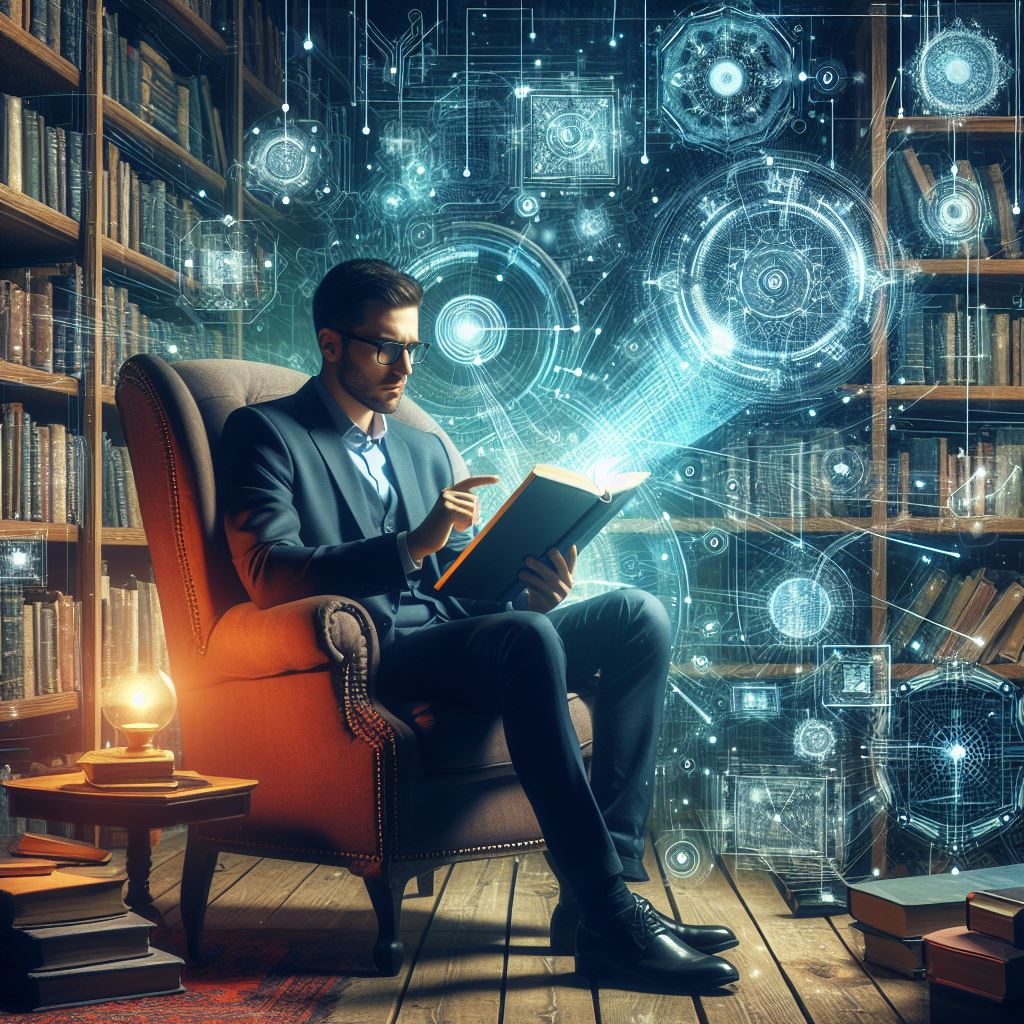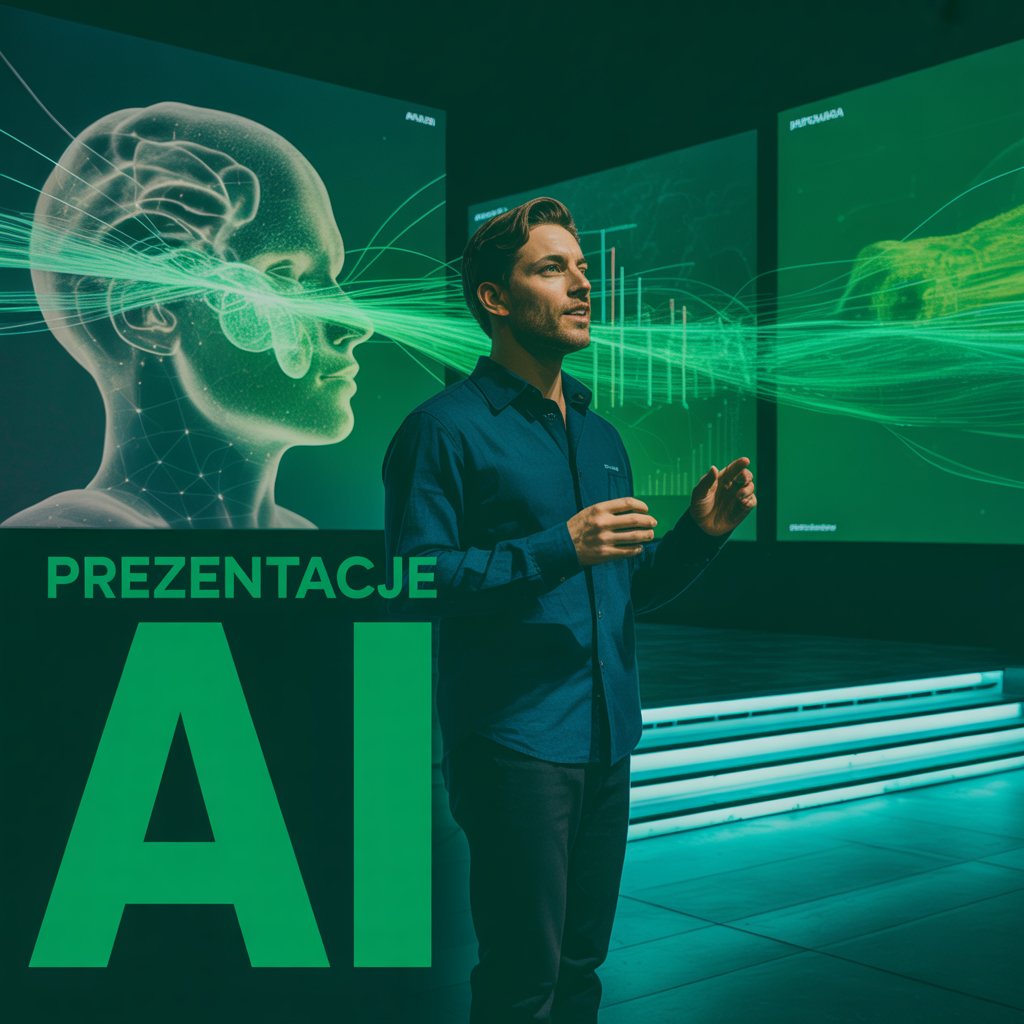The titles I’ve chosen are, of course, a subjective review of the literature I’ve had the opportunity to encounter so far. The list is therefore open, including to your suggestions and proposals.
Max Tegmark, Life 3.0: Being Human in the Age of Artificial Intelligence
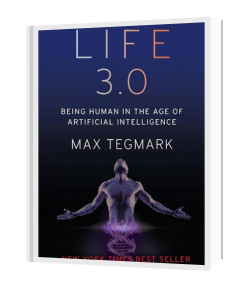
As early as 2017, Max Tegmark delved into the topic of AI’s future and painted a vision of the world to which artificial intelligence might lead us. Up for a good start, this book describes what artificial intelligence actually is. The author then examines how it will affect us in everyday life. The book addresses topics such as wars, law, work, crime, social relations and our concerns about the development of humanity.
One thing is certain: this book will encourage us, the readers, to discuss and explore artificial intelligence in everyday life.
Kai-Fu Lee, Chen Qiufan, AI 2041: Ten Visions for Our Future
Staying with the vision of artificial intelligence development, this book will take us on a journey to 2041 and introduce us to the future imagined by two brilliant individuals: Kai-Fu Lee, former president of Google in China and an advocate of artificial intelligence, and Chen Qiufan, a sci-fi novelist. They joined forces to present the potential impact of artificial intelligence on human life and outline a picture of human coexistence with AI. In this spirit, they provided their readers with ten visions of the future, as suggested by the title. Written with meticulous attention to detail and set in various parts of the world, these visions invite the reader to settle in as if in a good simulator and feel where we might be heading.
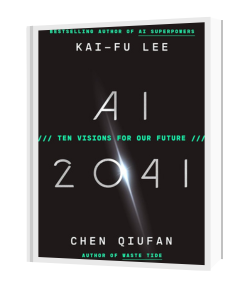
Mustafa Suleyman, Coming Wave: Technology, Power, and the Twenty-first Century’s Greatest Dilemma
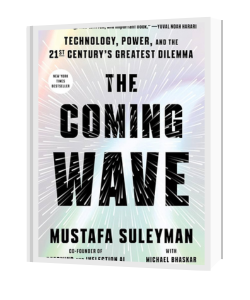
The titular wave is described by the author as changes that occurred gradually, gaining popularity until finally becoming part of our daily lives. Today, humanity faces enormous changes that cannot be stopped. We invented fire, the wheel, and the internet, but we didn’t do it in a single day — all these techniques and technologies gradually entered our lives to fundamentally change it. Artificial intelligence is another technology that could change the course of human history today.
This refers not only to accelerating drug research or demonstrating ways to reduce human impact on the environment but also to changes in the job market and how we communicate with technology. These are just a few of the images the author presents to illustrate the impact of artificial intelligence. However, allowing the enormous, progressive development of AI is tantamount to inviting equally enormous threats — from deepfakes and biometric cloning to possibilities yet unknown today.
Nick Bostrom, Superintelligence: Paths, Dangers, Strategies
When writing about concerns regarding the development of artificial intelligence, it’s impossible to overlook Nick Bostrom’s book. “Superintelligence” attempts to answer humanity’s pressing questions about the opportunities and threats stemming from AI development. Although the chapter on AI’s achievements to date may quickly become outdated, readers can focus more on chapters concerning the path of development, human extinction, or control over the human mind. Bostrom is an eminent researcher in this field and transhumanism, which is why he strives to discuss the consequences of machines’ presence in our lives in a clear and understandable manner, even for laypeople.
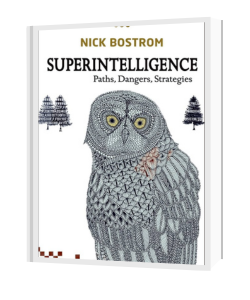
Aleksandra Przegalinska, Tamilla Triantor, Converging Minds: The Creative Potential of Collaborative AI
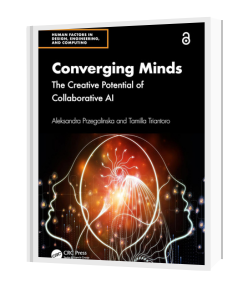
Aleksandra Przegalińska and Tamilla Triantor have tackled the intersection of human-machine relationships — in this case, our relations with artificial intelligence. They explore collaboration with generative models that we can utilise as personal assistants, both in our private and professional lives. The authors also address ethical and social issues, discussing how artificial intelligence may influence the future of the job market and create new job positions.
This book is an essential reading for anyone who wants to work with artificial intelligence on a daily basis. It’s a resource for scientists who wish to use AI in their research, for prompt engineers, and for machine learning programmers. In my opinion, it’s also a valuable read for beginners who want to understand the potential impact of tools like OpenAI’s ChatGPT on our lives.

